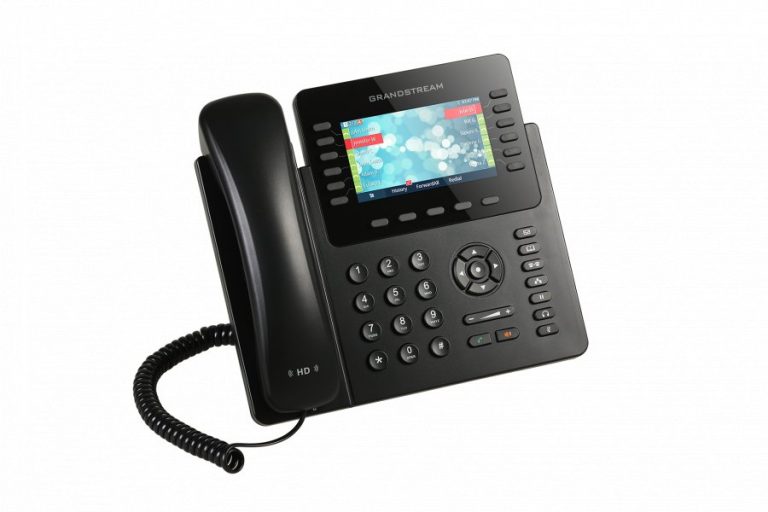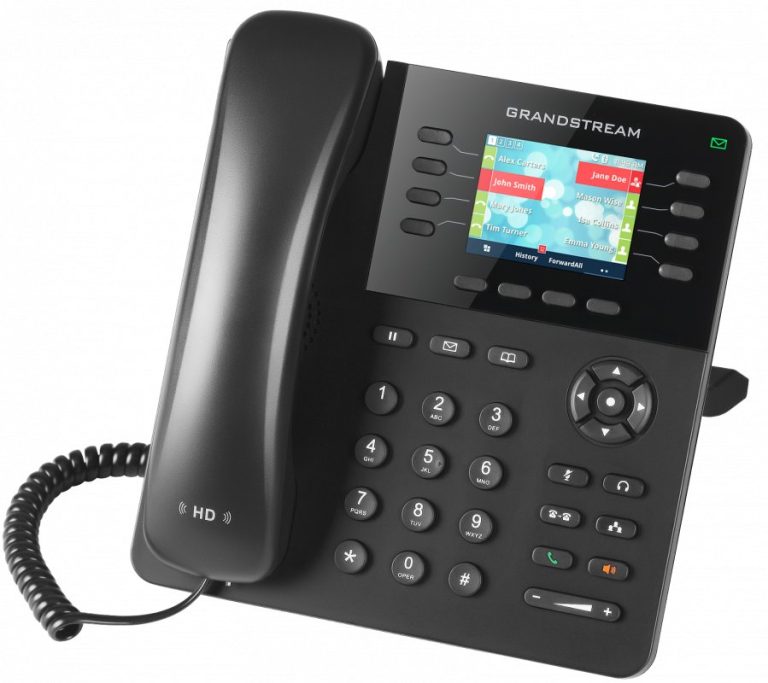In an era where transactional tactics once ruled sales, the true key to lasting success lies in empathy and trust. But can fleeting interactions evolve into lifelong partnerships? This exploration reveals that genuine human connections—rooted in authentic listening, emotional intelligence, and transparency—transform sales from mere exchanges into meaningful relationships. As the landscape shifts with technological advances, the challenge becomes maintaining sincerity in digital channels while leveraging data-driven insights. Will sales professionals master the delicate balance of technology and emotion to forge bonds that withstand the test of time? The journey toward authentic engagement is more vital than ever, turning brief encounters into enduring loyalty. Ultimately, the future of sales hinges on the ability to connect deeply, making trust the most valuable currency in a competitive marketplace.
Building Genuine Connections: The Power of Empathy and Trust in Sales
Successful selling isn’t just about closing deals or hitting targets; it’s about creating genuine human connections. At the core of these relationships are empathy and trust, which transform simple transactions into meaningful partnerships. When salespeople take the time to truly understand their clients’ feelings, needs, and concerns, they foster an environment where trust can develop naturally. This emotional bond encourages loyalty and turns one-time buyers into long-term supporters.
Building authentic relationships requires more than product knowledge or persuasive pitches. It starts with sincere listening and a genuine desire to understand. When salespeople demonstrate they care about their clients’ experiences, interactions shift from being purely transactional to relational. Showing authentic care makes clients feel valued and understood, making the sales process smoother and more effective. It also lays a foundation for trust that lasts beyond a single conversation.
Empathy and trust go hand in hand. When a salesperson shows real understanding of a client’s feelings, it deepens the connection beyond the immediate sale. Honesty, transparency, and consistency help establish credibility and respect. Trust isn’t built overnight; it develops through ongoing efforts to listen attentively, follow through on promises, and demonstrate that the client’s best interests are the priority. This long-term mindset turns fleeting interactions into enduring relationships.
Focusing on the human element in sales means prioritizing the client’s experience and showing authentic care. When customers sense that their needs come first, they are more likely to return, recommend, and stay loyal. Genuine connection rooted in empathy isn’t just good for the immediate sale—it creates a cycle of mutual value that supports sustained growth. Approaching each interaction with sincerity and attentiveness can make all the difference.
In today’s competitive landscape, mastering empathy isn’t optional; it’s essential. Sales success depends on building trust through active listening, honest communication, and emotional understanding. When salespeople approach their work with genuine care, they do more than close deals—they forge lasting relationships that underpin long-term success. Connecting on this human level is what turns brief exchanges into partnerships that stand the test of time.
From Transactions to Relationships: The Evolution of Sales Strategies
In the early days of sales, the emphasis was almost entirely on quick wins and persuasive tactics. Salespeople relied heavily on pressure, incentives, and polished pitches to close deals fast, often without genuinely understanding or caring about what the customer truly needed. This transactional style prioritized immediate results, sometimes sacrificing the long-term relationship for a short-term gain. Customers often felt pushed or misunderstood, which led to fleeting interactions and weak loyalty.
As businesses grew more aware of human behavior, sales strategies began to shift. Instead of just convincing prospects to buy, salespeople started recognizing the importance of building trust and forming real connections. They understood that nurturing ongoing relationships could lead to more sustainable success. This shift moved the focus from closing a deal at any cost to fostering mutual respect and understanding, creating a foundation for long-lasting partnerships.
The influence of psychology and sociology played a significant role in this evolution. Insights into how people think, feel, and act socially revealed that authentic relationships generally outperform superficial persuasion. Sales professionals learned that demonstrating genuine care and understanding could significantly boost trust and loyalty. This understanding helped move sales away from manipulative tactics toward a more human-centered approach, where emotional bonds became a key driver of success.
Today, the sales landscape is more focused on relationship-building. Modern strategies emphasize asking thoughtful questions, practicing active listening, and tailoring solutions to meet individual needs. This approach creates trust and shows clients that the salesperson genuinely cares about solving their problems, rather than just pushing products. The shift is clear: authentic engagement and emotional connection are now central to effective selling, making the process more ethical and sustainable.
This transition from transactional to relational sales reflects a deeper understanding that genuine bonds are crucial to lasting success. While early sales focused on rapid closures, today’s approach emphasizes cultivating trust over time. Building meaningful relationships based on authenticity and emotional insight has become the new standard, as it leads to stronger client loyalty and recurring business. Recognizing that people buy from those they trust and connect with, not just from the best pitch, has transformed the profession.
Looking ahead, this evolution highlights that the most effective sales strategies will continue to prioritize the human element. As markets become more competitive and customer expectations rise, the ability to foster real, trust-based relationships will remain a key differentiator. The history of sales shows that those who adapt and value genuine connection over superficial tactics will be best positioned to thrive in an ever-changing landscape.
Foundations of Trust: Core Principles of Empathy in Sales
Building trust and connection with clients starts with authenticity. When salespeople are honest and transparent about what they can deliver, it creates a safe space where clients feel valued rather than pressured. Genuine communication builds credibility, making it easier to establish a real rapport. Clients can tell when someone is sincere, and that authenticity encourages openness, laying the groundwork for trust from the very first interaction.
Active listening takes this a step further. Truly paying attention to what clients say—and what they might leave unsaid—reveals their core needs and underlying emotions. Instead of rushing into solutions, salespeople who listen carefully demonstrate they care about the client’s concerns. Asking open-ended questions and reflecting back what’s heard not only shows engagement but also deepens the relationship, transforming a simple exchange into a collaborative dialogue.
Emotional intelligence is key to fostering trust. Recognizing your own feelings and reading subtle cues from clients allows for responsive and empathetic interactions. Whether a customer hesitates, shows excitement, or expresses doubt, adapting your approach accordingly signals genuine care. This responsiveness creates a supportive environment where clients feel respected and understood, turning transactional moments into meaningful connections.
Consistency and follow-through reinforce trust over time. Delivering on promises, responding promptly, and demonstrating ongoing concern show that the client’s needs remain a priority. Remembering previous conversations and checking in regularly signals reliability and genuine interest. These small, consistent actions build confidence, making clients more likely to stay engaged and develop long-term loyalty.
Transparency solidifies this foundation. Being upfront about what your product or service can and cannot do helps set realistic expectations. Clients appreciate honesty and respect, which fosters credibility and mutual respect. Avoiding manipulative tactics and overpromising preserves your integrity, encouraging clients to trust your intentions. Building trust through transparency requires effort, but the payoff is relationships that flourish well beyond the initial sale.
For those interested in developing their sales skills further, exploring comprehensive resources can be incredibly beneficial. One highly recommended option is to visit Sales Training Resources, which offers valuable insights and practical techniques to strengthen your ability to build trust and foster genuine connections with clients.
Turning Theory into Practice: Success Stories of Empathy in Action
In real-world sales, applying empathy can be the game-changer that turns a potential lead into a loyal customer. Take a tech salesperson working with a client frustrated by previous software that didn’t meet their needs. Instead of pushing a canned pitch, she took the time to listen carefully, pinpointing the core issues—ease of use, support, and customization. By demonstrating genuine understanding and transparency, she tailored her presentation to address these specific concerns. The client, feeling truly heard and valued, went from skepticism to loyalty, returning for future purchases and even recommending her to others.
Another example involves a healthcare equipment salesperson who sensed hesitation during a meeting. Rather than rushing to close, she paused to ask about the client’s worries and responded with empathy. Offering reassurance and honest answers about the product’s capabilities helped build trust and respect. This approach created a supportive environment where the client felt understood, leading to a long-term partnership that extended beyond the initial sale. These moments show how active listening and authentic engagement foster trust naturally, often turning doubts into ongoing relationships.
A B2B software provider also saw a noticeable boost in repeat business after adopting a more empathetic approach. Instead of sending generic emails, their team made regular check-ins, asked about evolving needs, and offered customized advice. Clients appreciated this genuine interest, which strengthened the bond and transformed one-time buyers into long-term partners. Such stories highlight that empathy isn’t just about kindness—it’s a strategic tool that deepens trust and promotes sustainable growth.
Across industries, tailored empathy strategies prove effective. Retailers focusing on personalized service and quick responses build trust with individual shoppers. B2B professionals demonstrating expertise and understanding complex organizational needs foster loyalty. Service sectors like hospitality or consulting rely heavily on emotional connection and active listening. Recognizing these nuances allows salespeople to adapt their approach, making each interaction more meaningful and strengthening the foundation for lasting relationships.
Practicing empathy during sales calls or meetings involves more than just listening. It’s about giving full attention, asking open-ended questions, and reflecting what’s heard to clarify understanding. Small gestures—remembering previous conversations or following up thoughtfully—show genuine care and signal that the client’s concerns matter. These actions turn routine exchanges into authentic interactions rooted in trust, creating a cycle that encourages repeat engagement and referrals.
When salespeople consistently demonstrate care and understanding, they lay the groundwork for long-term loyalty. Clients who feel their concerns are valued tend to stay engaged, recommend the service, and return for future needs. These relationships aren’t built overnight; they grow through ongoing effort and sincere engagement. By integrating empathy into everyday interactions, sales professionals can transform quick wins into enduring partnerships that benefit both sides and drive sustained success.
Embracing the Future: How Empathy and Technology Will Shape Next-Gen Sales
As sales continue to evolve in a world driven by rapid technological change, empathy’s role is becoming even more vital. Advances in artificial intelligence and data analytics are giving sales teams powerful tools to personalize interactions in real time. These technologies can analyze conversations, behaviors, and preferences, helping salespeople respond more intuitively—even when meeting clients remotely. The ability to demonstrate genuine understanding and care through digital channels is now a key differentiator.
With the rise of virtual meetings and digital communication, building authentic relationships without face-to-face contact demands a new level of emotional intelligence. Success hinges on conveying sincerity and empathy through screens, whether via video calls, chat, or email. Salespeople who master the art of remote engagement will stand out, using technology not as a barrier but as an extension of genuine connection. Authenticity, active listening, and transparent communication become even more important in creating trust across digital platforms.
As clients become more selective and value-driven, emotional intelligence will take center stage. Recognizing subtle cues—such as hesitation, excitement, or doubt—and responding appropriately will be crucial. Developing skills like cultural sensitivity and personalized communication will help sales professionals forge deeper bonds, regardless of physical distance. This focus on nuanced understanding ensures that relationships remain meaningful and resilient amid changing expectations.
Continuous learning and self-awareness will be essential for sales teams aiming to keep pace with these shifts. Regular training in empathy, emotional intelligence, and adaptive communication will enable salespeople to refine their skills. Organizations that prioritize these areas will cultivate teams capable of handling complex, nuanced conversations and delivering a truly human experience, even in a digital age.
The integration of advanced technology with authentic human connection is shaping the future of sales. Artificial intelligence and data insights support, rather than replace, empathy. When combined with sincere engagement, these innovations allow for highly personalized experiences that build trust and loyalty. This fusion turns transactional exchanges into partnerships rooted in mutual understanding and shared values.
Looking ahead, the most successful salespeople will be those who adapt their emotional intelligence to new channels and evolving customer expectations. They will leverage technology to demonstrate empathy authentically, creating relationships that withstand time and distance. By embracing both innovation and genuine human care, they will foster trust that endures, ensuring sustained growth and long-term loyalty.
In the end, the future of sales depends on our ability to maintain authentic, empathetic relationships across all platforms. Those who understand that technology amplifies the human element—and not replaces it—will thrive. Building trust in a digital world requires a balanced approach: combining the latest tools with a sincere commitment to understanding and caring for clients. This blend will keep genuine connection at the heart of every successful sale.



